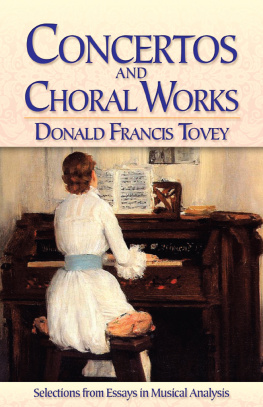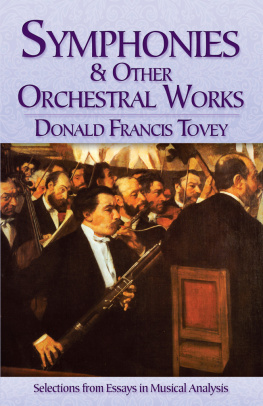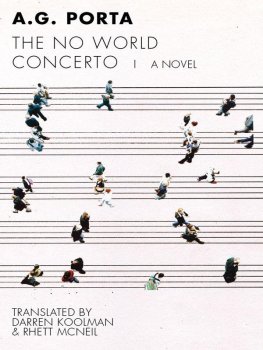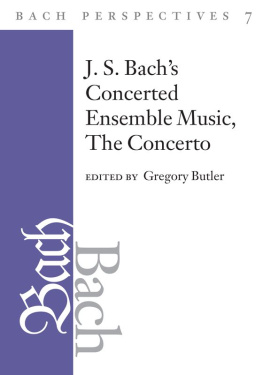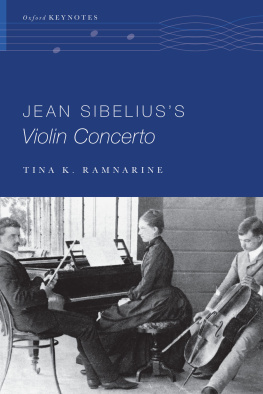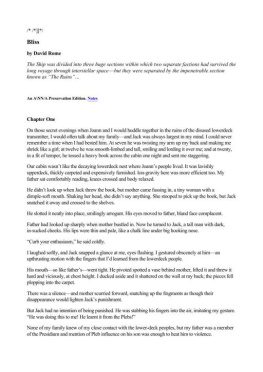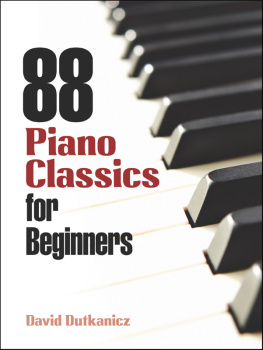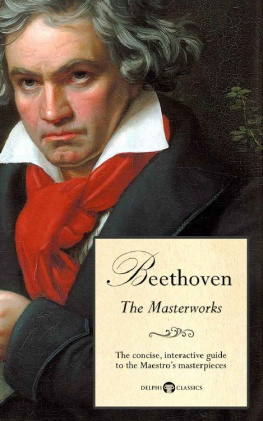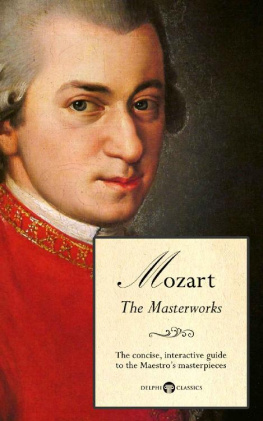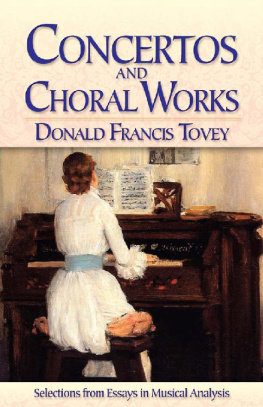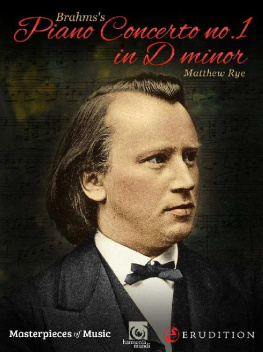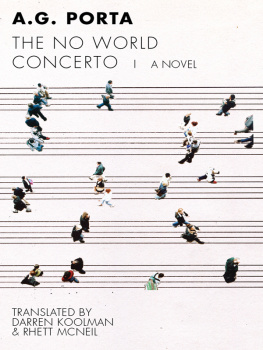C ONCERTOS
AND
C HORAL W ORKS
Selections from Essays in Musical Analysis
C ONCERTOS
AND
C HORAL W ORKS
Selections from Essays in Musical Analysis
D ONALD F RANCIS T OVEY
D OVER P UBLICATIONS , I NC .
Mineola, New York
Bibliographical Note
This Dover edition, first published in 2015, is a republication of Concertos and Choral Works: Essays in Musical Analysis, originally published by Oxford University Press, New York, in 1989.
Library of Congress Cataloging-in-Publication Data
Tovey, Donald Francis, 18751940.
Concertos and choral works : selections from essays in musical analysis / Donald Francis Tovey.
p. cm.
This Dover edition, first published in 2015, is a republication of Concertos and Choral Works: Essays in Musical Analysis, originally published by Oxford University Press, New York, in 1989.
eISBN-13: 978-0-486-80143-8
1. ConcertosAnalysis, appreciation. 2. Choral musicAnalysis, apprecition. I. Title.
MT90.T59 2015
784.2309dc23
2014027843
Manufactured in the United States by Courier Corporation
78450901 2015
www.doverpublications.com
CONCERTOS
THE CLASSICAL CONCERTO
(1903)
INTRODUCTION
Without a sound appreciation of those peculiarities of form which distinguish the classical concerto from the classical symphony the concerto can only be very imperfectly understood, whether by performers or by listeners; for the rational enthusiasm for great classics is the outcome not only of natural taste, but also of long familiarity with all that is purest in art; and so far as the opportunity for such familiarity is wanting, so far will current ideas and current criticism be vague, Philistine, and untrue. Now the number of great works in the true concerto form is surprisingly small; far smaller than the number of true symphonies. And of this small collection a good two-thirds has been contributed by Mozart, whose work has for the last fifty years been treated with neglect and lack of intelligent observation, for which we at the present time are paying dearly with a notable loss both of ear for fine detail and of grasp of musical works as definite wholes.remain comfortably in their minds side by side with the opposite, and scarcely less untrue notion, that in the works of Bach and his contemporaries the solo part of a concerto is no more than primus inter pares. The first idea springs from the assumption (difficult to avoid, where bad works so overcrowd good ones) that art-forms are invented by bad artists to be disgustedly improved off the face of the earth by the great men; and the second springs from the difficulty of recognizing in ancient art anything that does not happen to take much the same shape in modern art.
The only way to avoid these pitfalls is to seek out the typical artistic idea that is to be found in the concertos of the greatest composers. To avoid repeating what I have written elsewhere, I propose to follow out this train of thought in an historical, or at all events chronological, sketch, instead of applying it merely to any particular concerto. Opinions differ so much as to the way in which musical history should be written that I hesitate to call this sketch historical. Its object is to trace the successive forms in which what I shall call the concerto-idea has been realized. Those forms in which it has been falsified by vanity, or obscured by imperfect skill or vague thought, will not come under discussion at all, though to many historians that which is transitional and immature is often more interesting, and always more easy to discuss than that which is permanent and self-consistent.
To avoid a frequent source of misunderstanding, I must point out that neither here nor in any other of my analytical essays is the basis of analysis technical. It is frequently urged as an objection to all musical analysis that to investigate how it is done distracts the mind from the poetic enjoyment of a work of art. So it does; you cannot, for instance, enjoy the first movement of Beethovens Eroica Symphony if you insist on thinking the while of Beethovens seven or eight different sketches of its exposition. They are among the most wonderful documents recording the profound workings of a creative mind; but the only way in which they can help you to enjoy the symphony is by directing your attention to what it is. Follow up the sketches, then, as they approach the final version from something now more monotonous, now more violent, now smaller, now dangerously large, always changing with the surprising purpose and power of a creator who ruthlessly rejects all that will not remain as an inspiring force for all time, when what common admirers of genius call the inspiration of the moment has gone the way of dreams and moods. Follow this up until it leads you to the ideal, the realized Eroica Symphony; and you will no longer think that there is anything prosaic in investigating how it was done. But you will see this only if, as you listen to the symphony, you forget the sketches utterly, as Beethoven himself forgot them. They have helped you, not because they showed you how it was done, but because they drew your attention to what was done; and on that, and that alone, your attention must remain fixed, or the whole object of all that loving and laborious sketching is lost.
Musical analysis then is concerned with what is done. Unless the composer has left sketches, any attempt to speak of how it is done is downright charlatanry, a pretence of solving a problem that is beyond the human intellect. Beethoven himself must have found his old sketch-books a series of perpetual surprises if he ever looked at them a year or two after finishing a work.
An analysis that gives a faithful account of what is done in a work of art cannot but be a help, so long as it is not one-sided and is used in a practical way. Hence in my early essays I have aimed at quoting or at least mentioning every theme in the works analysed, so that the material may lie conveniently before the eye. On the other hand, I have from the outset abandoned any attempt to confine the letterpress to what can be read in the concert-room. Quotations in musical type can be seen while they are heard; but the kind of prose explanation that can be read while the music is going on is as useless in the concert-room as it is at home.
Lastly, as this is an essay on a musical subject I have tried to treat it from a musical point of view. This again is not a limitation to technical matters; music is music, and does not become technical as soon as it is not discussed as if it were a nondescript mixture of intellect and emotion and poetry. As a plain musician I believe music to be music; poetry, a form of literature; painting, one of the plastic arts; and all to be poetry. But when I discuss music I shall speak of things musical, as beautiful harmony, breadth, firmness and depth of modulation, nobility of form, variety and contrast of tone, clear and well-motived contrast and harmonious fullness in those simultaneous combinations of melodies which we call counterpoint, for it is these things and others equally musical that make a concerto or a symphony what it is. And if it is objected that these things, as they occur in classical music, are non-poetical, or mere technical means of expressing some poetic idea that lies behind them, I can only reply that, so long as music remains music, this poetic idea will only be attainable through these musical phenomena. Certainly a criticism or an admiration that scorns the musical phenomena does not thereby become poetical; on the contrary, the man who expects music to give him poetical ideas while he refuses to listen to it as music, will infallibly, if he looks at other things as he looks at music, value poetry for the information it conveys when paraphrased in prose, architecture for the problems it solves in engineering, science for its practical use, and in short, everything for its lower and more accidental qualities, and this is the very type and essence of the prosaic mind.
Next page
